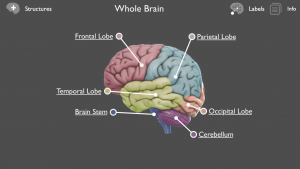
It is so important to evaluate and treat depression by a professional. The symptoms of a clinical depression can be severe and life altering. People say they are depressed, but following is a clinical description with symptoms of what is considered a “Major Depression”
Sadness is a part of human existence that the majority of the time does not necessitate treatment. These periods should not be diagnosed as a depressive episode if they do not met criteria for severity and duration, and include clinically significant distress or impairment (American Psychiatric Association, 2013).
Depressed mood or anhedonia (diminished interest or pleasure in activities) is necessary to diagnose major depression.
The use of a mnemonic may be helpful for remembering the symptoms of major depression and persistent depressive disorder. SIGECAPS or SIG + Energy + CAPS is easily remembered and can be used in the clinical interview. Developed by Dr. Carey Gross of Massachusetts General Hospital, it stands for:
Sleep disorder (increased or decreased)
Interest deficit (anhedonia)
Guilt (worthlessness, hopelessness, regret)
Energy deficit
Concentration deficit
Appetite disorder (increased or decreased)
Psychomotor retardation or agitation
Suicidality
Criteria Required for Diagnosis
DSM-5 Criteria: Major Depressive Episode
To qualify for a diagnosis of major depressive episode, the patient must meet criteria A through E:
A. Five or more of the following symptoms have been present and documented during the same two-week period and represent a change from previous functioning; at least one of the symptoms is either (1) depressed mood or (2) loss of interest or pleasure.
Note: Do not include symptoms that are clearly attributable to another medical condition.
1) Depressed mood most of the day, nearly every day, as indicated by either subjective report (e.g., feels sad, empty, hopeless) or observation made by others (e.g., appears tearful)
2) Markedly diminished interest or pleasure in all, or almost all, activities most of the day, nearly every day (as indicated by either subjective account or observation)
3) Significant weight loss when not dieting or weight gain (e.g., a change of more than 5% of body weight in a month), or decrease or increase in appetite nearly every day
4) Insomnia or hypersomnia nearly every day
5) Psychomotor agitation or retardation nearly every day (observable by others, not merely subjective feelings of restlessness or being slowed down)
6) Fatigue or loss of energy nearly every day
7) Feelings of worthlessness or excessive or inappropriate guilt (which may be delusional) nearly every day (not merely self-reproach or guilt about being sick)
8) Diminished ability to think or concentrate, or indecisiveness, nearly every day (either by subjective account or as observed by others)
9) Recurrent thoughts of death (not just fear of dying), recurrent suicidal ideation without a specific plan, or a suicide attempt or a specific plan for committing suicide
B. The symptoms do not meet criteria for a mixed episode.
C. The episode is not attributable to the physiological effects of a substance or to another medical condition.
Please seek a professional or medical evaluation for the accurate diagnosis and treatment of clinical depression. It is treatable and you do not need to live with the overwhelming feelings and symptoms of depression.
Source: https://www.icsi.org/…/diagnose_and_characterize_major_dep…/
